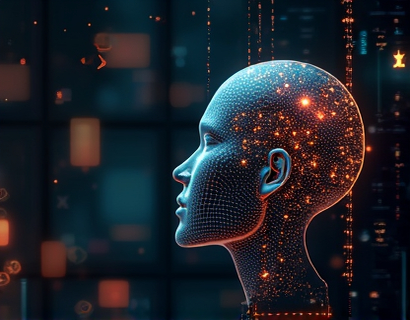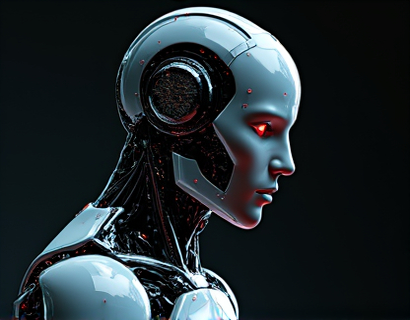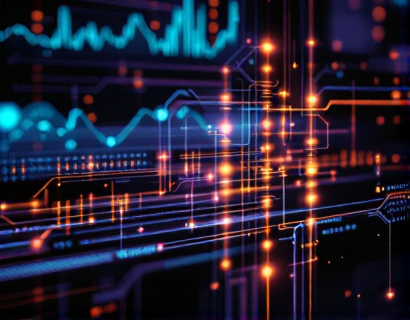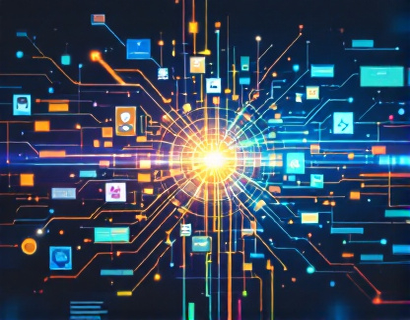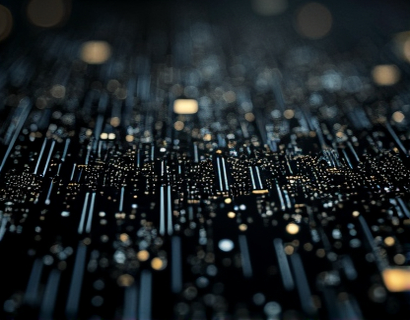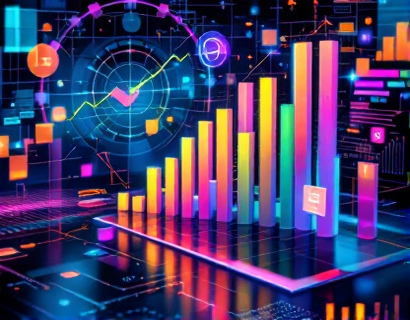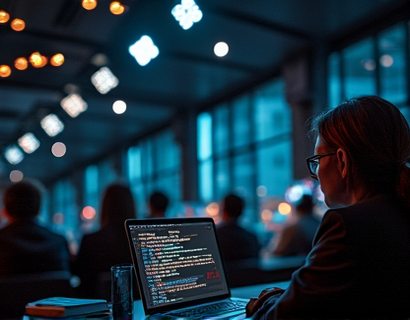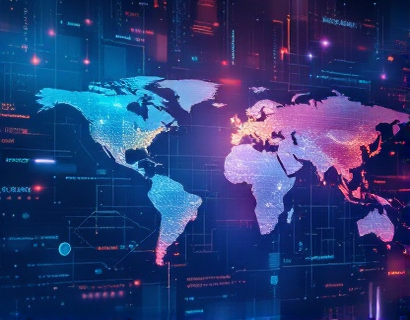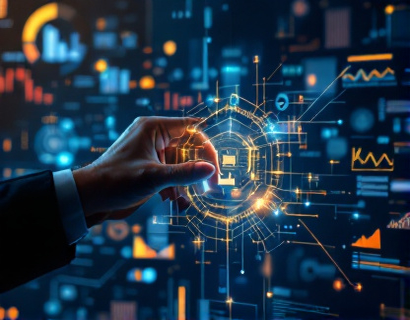Revolutionizing Productivity: The Synergy of Crypto and AI
The intersection of cryptocurrency and artificial intelligence (AI) is giving rise to a new era of digital solutions that promise to transform productivity for tech innovators and digital visionaries. This fusion leverages the decentralized and secure nature of blockchain technology with the advanced computational capabilities of AI, creating innovative applications that streamline tasks and enhance efficiency. For tech leaders and early adopters, this convergence offers a unique opportunity to harness the power of next-generation digital tools.
Understanding the Basics: Crypto and AI
To fully appreciate the impact of this synergy, it's essential to understand the fundamental concepts of both cryptocurrency and AI. Cryptocurrency, such as Bitcoin and Ethereum, operates on blockchain technology, a distributed ledger that ensures transparency, security, and immutability. This technology enables peer-to-peer transactions without the need for intermediaries, reducing costs and increasing efficiency.
AI, on the other hand, involves the simulation of human intelligence processes by machines, particularly computer systems. These processes include learning (the acquisition of information and rules for using it), reasoning (using rules to reach approximate or definite conclusions), and self-correction. AI can automate complex tasks, analyze vast amounts of data, and provide insights that would be impossible for humans to discern manually.
The Emergence of Crypto-Powered AI Solutions
The combination of blockchain and AI has led to the development of crypto-powered AI solutions that offer enhanced security, transparency, and efficiency. These solutions are particularly appealing to tech innovators who are always on the lookout for cutting-edge tools to stay ahead in a competitive landscape. One of the key areas where this synergy is making a significant impact is in the realm of decentralized computing.
Decentralized computing platforms utilize blockchain to distribute computational tasks across a network of nodes, rather than relying on centralized servers. This approach not only enhances security by eliminating single points of failure but also optimizes resource utilization. AI algorithms can be deployed on these platforms to perform complex computations, data analysis, and machine learning tasks, all while benefiting from the distributed and secure nature of the network.
Enhancing Productivity with AI-Driven Task Management
One of the most immediate benefits of integrating AI with cryptocurrency is in the area of task management and productivity tools. Traditional task management software often suffers from data silos, lack of automation, and limited scalability. AI-driven solutions can overcome these limitations by providing a seamless, integrated experience that leverages blockchain for secure and transparent data management.
For instance, an AI-powered task management system can automatically prioritize tasks based on urgency and importance, delegate tasks to team members, and even predict potential bottlenecks before they occur. By using blockchain, all task data is stored in a tamper-proof ledger, ensuring that everyone involved has access to the most up-to-date and accurate information. This level of transparency and automation can significantly boost productivity and collaboration among teams.
Smart Contracts for Automated Workflows
Smart contracts, self-executing contracts with the terms of the agreement directly written into code, are another powerful tool that emerges from the crypto-AI synergy. These contracts can automate a wide range of workflows, from financial transactions to project management processes. When integrated with AI, smart contracts can become even more intelligent and adaptive.
For example, an AI-driven smart contract can monitor the progress of a project and automatically trigger payments or notifications based on predefined milestones. If a task is delayed or not completed as agreed, the smart contract can adjust the workflow, assign new tasks, or even mediate a resolution. This level of automation not only saves time but also reduces the risk of human error and ensures that projects stay on track.
Data Security and Privacy in AI Applications
Data security and privacy are critical concerns in the age of AI, and the integration of blockchain technology addresses these issues effectively. By storing data on a decentralized blockchain, AI applications can ensure that sensitive information is protected from unauthorized access and tampering. This is particularly important for businesses and individuals who handle large volumes of data and need to comply with stringent regulatory requirements.
AI algorithms can also be designed to work with encrypted data, allowing for computations to be performed without exposing the underlying data. This approach, known as homomorphic encryption, enables AI to derive insights and make decisions based on secure and private data. For tech innovators, this means they can leverage the power of AI without compromising on data security and privacy.
Optimizing Resource Allocation with AI
Another significant advantage of combining crypto and AI is the optimization of resource allocation. In traditional computing environments, resource allocation is often inefficient, leading to wasted computational power and increased costs. AI can analyze usage patterns and predict future demands, allowing for dynamic allocation of resources on a blockchain-based network.
For instance, a decentralized cloud computing platform can use AI to allocate computing resources based on real-time demand, ensuring that users pay only for the resources they actually use. This not only reduces costs but also minimizes the environmental impact of data centers by optimizing energy usage. For tech leaders, this means access to scalable and cost-effective computing resources that are both sustainable and secure.
Enhancing Supply Chain Transparency
Supply chain management is another area where the fusion of crypto and AI can drive significant improvements. By using blockchain to create an immutable and transparent record of every step in the supply chain, businesses can gain real-time visibility into the movement of goods, from production to delivery. AI can further enhance this by analyzing the data to identify inefficiencies, predict delays, and optimize logistics.
For example, an AI-powered supply chain management system can use blockchain to track the origin and journey of raw materials, ensuring compliance with ethical and regulatory standards. AI algorithms can analyze this data to optimize inventory levels, reduce waste, and improve overall efficiency. This level of transparency and intelligence can give businesses a competitive edge and build trust with consumers who value ethical and sustainable practices.
Challenges and Considerations
While the potential benefits of integrating crypto and AI are substantial, there are also challenges and considerations that tech innovators should be aware of. One of the primary challenges is the technical complexity involved in developing and implementing these solutions. Both blockchain and AI require specialized knowledge, and the integration of the two can be particularly daunting.
Another consideration is the regulatory landscape. As cryptocurrency and AI technologies evolve, regulatory frameworks are still catching up. Businesses must navigate a complex and often uncertain legal environment, ensuring compliance while innovating. Additionally, the energy consumption associated with blockchain, particularly proof-of-work systems, is a concern that needs to be addressed to make these solutions more sustainable.
The Future of Crypto and AI
The future of crypto and AI is bright, with ongoing research and development promising even more innovative applications. As the technologies mature, we can expect to see more seamless integrations that further enhance productivity and efficiency. For tech innovators and digital visionaries, staying at the forefront of this revolution means embracing these tools and exploring their potential to transform industries and create new opportunities.
In conclusion, the fusion of cryptocurrency and AI is not just a technological trend but a transformative force that is reshaping the way we work and interact with digital solutions. By leveraging the strengths of both domains, we can create a more secure, efficient, and productive digital landscape for all.





